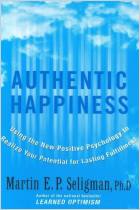加入 getAbstract 阅读摘要

加入 getAbstract 阅读摘要
Sonja Lyubomirsky
The How of Happiness
A New Approach to Getting the Life You Want
Penguin, 2008
看看什么内容?
Unhappy? Take a scientific approach and get happy. You’ll be happy to know it works
Recommendation
Singer Bobby McFerrin had a monster hit in 1988 entitled Don't Worry, Be Happy. The hypnotically perky, happy song hopped its way across the globe, magically lifting the spirits of listeners everywhere. The lyrics say: “In your life expect some trouble / When you worry you make it double / Don’t worry, be happy / Be happy now.” If only happiness were that easy to achieve. Indeed, happiness requires considerable focus and effort, but psychologist Sonja Lyubomirsky promises that it is eminently achievable, even for the galactically unhappy. She outlines some proven psychological stratagems and explains why they work, if you put in the effort. Just be aware of and implement specific mood-lifting techniques to improve the level of happiness in your life. Whether or not you cheer up when you hear McFerrin’s catchy tune, getAbstract suggests giving Lyubomirsky’s scientific happiness-inducing techniques a shot. Don’t worry, be happy: They just might work.
Summary
About the Author
Sonja Lyubomirsky is a psychology professor at the University of California, Riverside, and winner of the Templeton Positive Psychology Prize.




















Comment on this summary